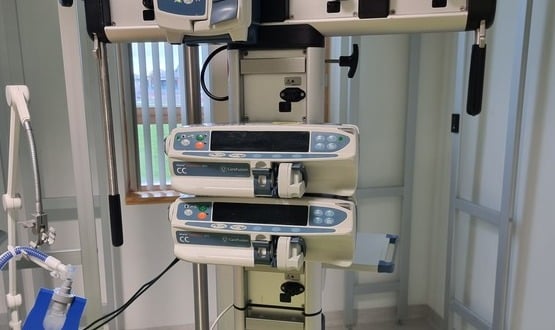A reflection on the state of the art by a CNIO
- 5 November 2019

Following on from being crowned CNIO of the Year at the Digital Health Awards 2019, Natasha Phillips discusses her health informatics career. The CNIO at University College London Hospitals NHS Foundation trust explores why nurses are digitally interested and why the CNIO community should be nurtured.
On 31 March 2019 UCLH took the bold step of a big bang whole system digital transformation. For nursing, we took the decision not to just digitise what we already did but to change our practice.
We decided to return to and embed, nursing theory in the design of our electronic patient record, a move away from task orientated care and back to holistic nursing care. We also recognised the opportunity not to simply see our EHR as a tool for documenting care but as an intervention building in decision support underpinned by evidence-based practice.
We adopted a recognised evidence based standardised nursing terminology that would enable us to be frontrunners in generating evidence about nursing practice using the rich patient level data our EHR would contain.
Nurses are digitally interested
Before we could do this, we needed to confront our fears as a profession. Would the art of nursing be lost to the science? Would digital systems get in the way and overtake relationship? These fears were not unfounded; too often we see examples of where digital technology does not work for nurses.
This fact plays into myths that nurses are not digitally interested or capable. Only in September, at NHS Expo, it was suggested to me that nursing is a vocation and that is why nurses don’t do digital.
My blood pressure rose as I was reminded of the wearisome debate that so often emerges in the popular press that nursing is simply about caring and so surely a university education is not needed with headlines like ‘Nurses too posh to wash’.
Digital is every nurses’ business
I will leave the debate about the art and science of nursing for another day and propose an alternative reason why nurses may struggle with digital technologies in healthcare; usually they are not designed by nurses for nurses and too often they find themselves working with systems that do not address the challenges they face in their practice.
Systems that increase their workload reducing the time they can spend on the art of nursing – having meaningful interactions with patients that improve that patient experience and yield valuable information to improve patient outcomes.
Thanks to the bold approach the organisation has taken, we now have an array of nurses at UCLH whose roles support digital innovation and adoption; clinical systems designers, clinical practice educators, digital link nurses.
Through our digital transformation it has become clear that digital is every nurse’s business.
Nurturing the CNIO community
Enthusiasts have emerged in the process and a key element of my role as CNIO is to lead and nurture these communities and develop our strategy and clear career pathways to ensure we are a profession enabled by digital technology in our practice, education, research and the way we lead.
We have a shared vision to be a profession enabled by digital technology and having laid the foundation of one patient, one record, supported by evidence-based content, we are now in a position to deliver that vision.
As a CNIO I am part of an emergent national community and I see huge variation in the level of digital maturity people are working with but also in the value placed on the nursing contribution and the knowledge and skills of those working in the field.
Looking at the bigger picture
I find myself looking beyond my own organisation and asking what can we do as nurses to ensure patients and staff benefit from digitally enabled healthcare wherever they receive care or work and what is our unique contribution as a profession to this goal?
Nursing is about function not disease, it is about promoting health and enabling people to live their best lives with disability or disease in all settings.
This leaves nurses ideally placed to lead on innovations that support the vision laid out in the NHS Long Term Plan.
Nurses have a lot to offer
We have a lot to offer and I conclude that to make this contribution we must start with ourselves as a professional workforce.
We must take the agenda seriously, invest in nurses creating a clear career pathway for those who wish to specialise in this field. This change has to be underpinned by education and so nurse leaders across practice, education and research should work together to generate a digital nursing pathway and change education to ensure nurses have the knowledge and skills not only to work in digital healthcare but to innovate and lead digital transformation.
It is only with a workforce with the right skills that we can hope to move not just to fundamental standards like digitised care records and information sharing across care pathways but to real innovations solving real problems, advancing practice.
I am increasingly hopeful that this is entirely possible; in my role as a CNIO, I have met numerous nurses with the experience and passion to lead digital healthcare, even when it is difficult to be heard and their contribution is undervalued.
The community is growing; I was at a recent CNIO event where twelve nursing networks were identified.
It is great to see so many digital nursing communities emerging; each with a unique contribution but it is also important that we are clear what our shared professional vision is and speak with one voice if we are to lead effectively, increase our impact and capitalise on our collective knowledge and strength to deliver the investment and work needed to shape our profession for the future and to realise the full potential of digital healthcare for the benefit of patients and staff alike.




